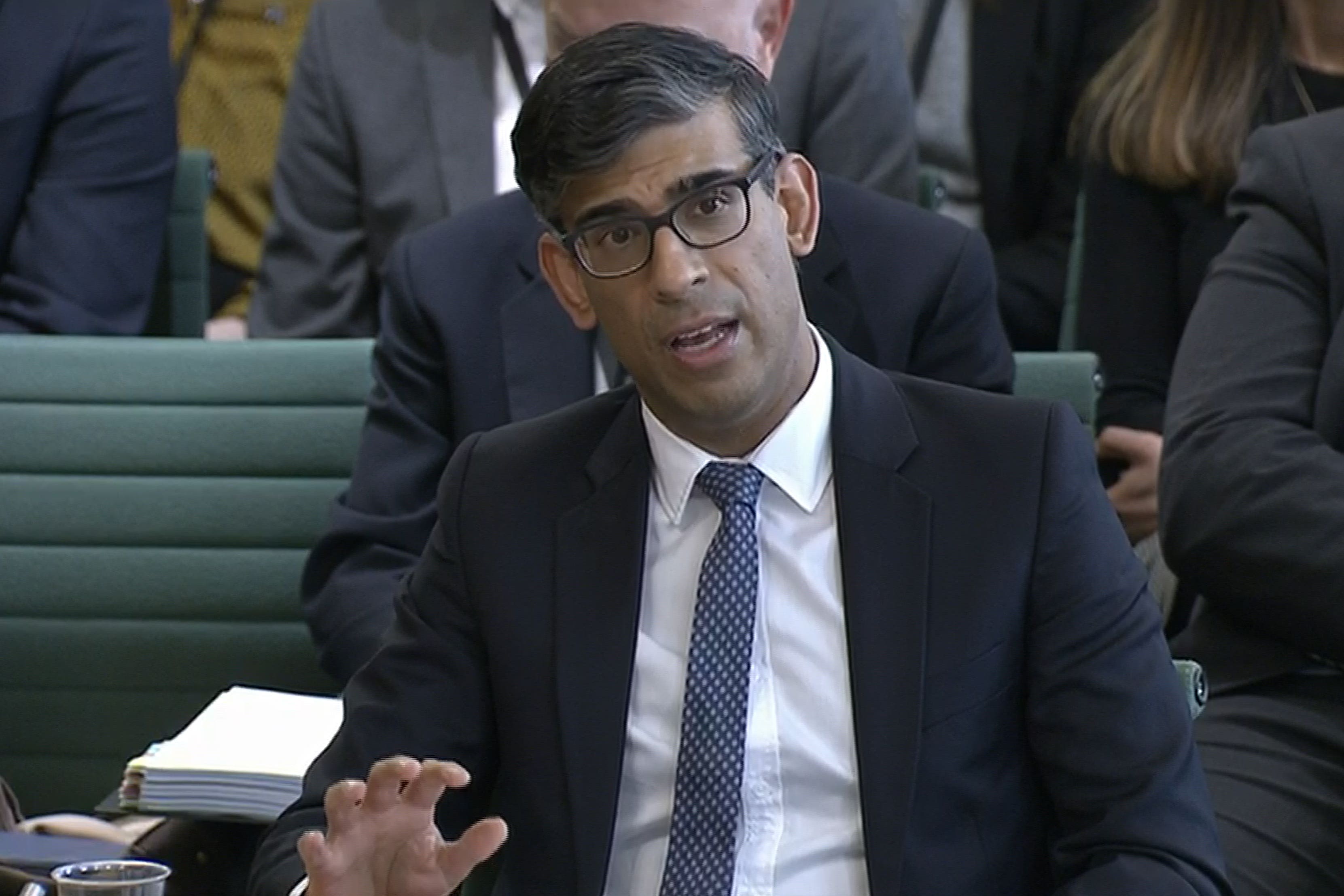Sunak pledges pensions triple lock will stay in place throughout next Parliament
The Prime Minister was grilled by senior MPs on the Commons Liaison Committee.

Your support helps us to tell the story
From reproductive rights to climate change to Big Tech, The Independent is on the ground when the story is developing. Whether it's investigating the financials of Elon Musk's pro-Trump PAC or producing our latest documentary, 'The A Word', which shines a light on the American women fighting for reproductive rights, we know how important it is to parse out the facts from the messaging.
At such a critical moment in US history, we need reporters on the ground. Your donation allows us to keep sending journalists to speak to both sides of the story.
The Independent is trusted by Americans across the entire political spectrum. And unlike many other quality news outlets, we choose not to lock Americans out of our reporting and analysis with paywalls. We believe quality journalism should be available to everyone, paid for by those who can afford it.
Your support makes all the difference.Rishi Sunak has assured the public that the pensions triple lock will remain in place throughout the next Parliament if the Conservatives win the general election.
During a grilling by MPs on the Commons Liaison Committee on Tuesday, which also featured a clash over his Rwanda plan, the Prime Minister denied there is a “crisis” in local government funding.
“I wouldn’t characterise it that way,” he said, but admitted “there are challenges, particularly with inflation”.
“And if you look at what’s happened, from central government to local government, over this Parliament, since 2019, the grant in cash terms has more than doubled,” he added.
Levelling Up, Housing and Communities Committee chairman Clive Betts pointed out that this is in the context of a 30% cut in councils’ spending power since 2010.
It’s certainly not in the Government’s interest to have sensitive Budget measures leaked in advance
On the pensions triple lock, Mr Sunak said the public can “safely assume” it will be kept in place throughout the next Parliament if the Tories win the next election.
The triple lock refers to the commitment to raise the state pension every year in line with whichever is highest out of wage growth, inflation or 2.5%.
It has become a hallmark of successive Conservative governments since it was announced in 2010, but there has been a debate about its long-term future due its costs.
Asked whether he thinks it is affordable, the Prime Minister told the Liaison Committee: “I do, because the track record of the Government is that we make priorities, and making sure that if you have worked hard all your life you have the dignity that you deserve in retirement is important to me, it’s important to the Government, and the triple lock is an expression of that.”
Mr Sunak sought to give assurances that public spending will continue to grow in real terms, but said public services must become 5% more productive.
He told the committee: “I do think it’s right that we focus on productivity to get more out of the investment we’re putting in to public services.
“To give just one statistic – public sector productivity is around 5% lower today than it was before the pandemic.
“So, no-one is asking anything heroic; it’s just a return to where we were.
“Obviously the private sector has managed that.”
Questions on the economy also touched on a leak of Chancellor Jeremy Hunt’s planned national insurance cut to newspapers ahead of the spring Budget.
“I deplore these leaks, particularly around Budget measures,” the Prime Minister said.
“It’s certainly not in the Government’s interest to have sensitive Budget measures leaked in advance.”
But he could not “recall” whether a leak inquiry was launched earlier this month.
The most heated part of his appearance was over his flagship Rwanda deportation scheme.
Mr Sunak objected to SNP MP Joanna Cherry’s question about whether he is proud of telling Tory MPs to vote against an amendment preventing Afghans who had supported British forces from being deported to Rwanda.
“I really disagree with that characterisation,” he said, adding that in light of recent debates in Parliament about MPs’ intimidation, “I actually think characterising like that is deeply unhelpful”.